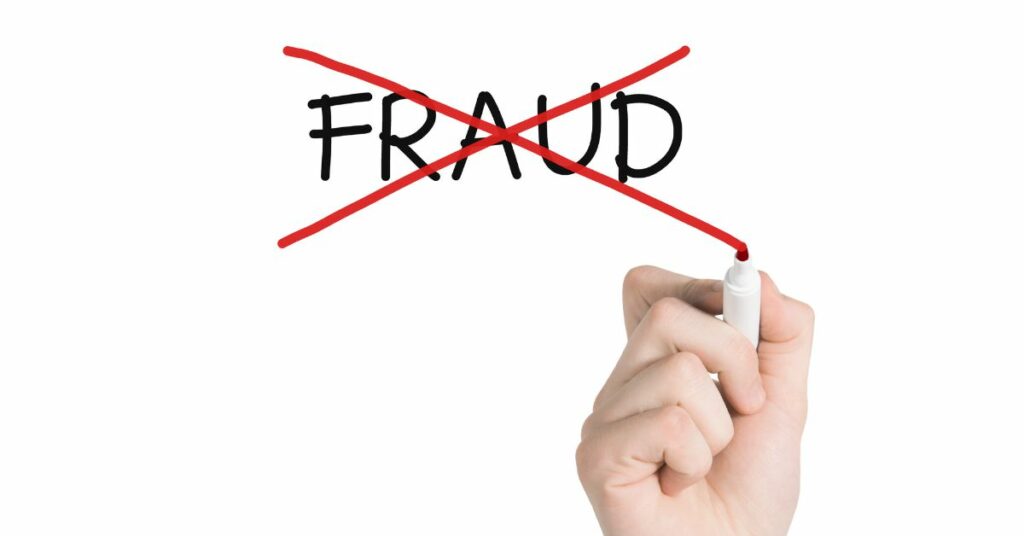What are Examples of Financial Red Flags?
In today’s complex and ever-evolving financial landscape, it is crucial for investors to be vigilant and aware of potential risks and pitfalls. One way to protect oneself from investment fraud is to identify and understand the various red flags that may indicate fraudulent activities. By recognizing these warning signs, investors can make informed decisions and take necessary precautions to safeguard their hard-earned money.
Financial red flags can manifest in multiple forms, ranging from suspicious investment opportunities to unscrupulous financial advisors. Here are some common examples of red flags that investors should be aware of:
1. Guaranteed High Returns: Investment opportunities that promise unusually high returns with little or no risk should be approached with caution. While every investor hopes for substantial returns, it is essential to recognize that high returns typically involve higher risks. Fraudsters often use the lure of guaranteed high returns to entice unsuspecting investors into fraudulent schemes.
2. Unsolicited Investment Offers: Cold calls, emails, or unsolicited messages offering investment opportunities should raise red flags. Reputable investment firms and advisors do not typically reach out to potential clients in such a manner. Investors should exercise caution and thoroughly research any investment opportunity that comes out of the blue.
3. Lack of Regulation or Licensing: Legitimate investment professionals are typically licensed and regulated by relevant authorities. Investors should always verify the credentials of the individuals or firms they are considering investing with. A lack of licensing or regulation is a significant red flag that should not be ignored.
4. Pressure to Invest Immediately: Fraudsters often employ high-pressure tactics to push investors to make quick decisions without proper due diligence. Investors should never feel rushed or obligated to invest immediately. A reputable investment professional will understand and respect the need for investors to take their time and make informed choices.
5. Complex or Vague Investment Strategies: Investments that are overly complex or difficult to understand should be approached with caution. Fraudsters often use complex investment strategies to confuse investors and make it challenging to identify fraudulent activities. Investors should seek clarification and a clear understanding of any investment before committing their funds.
6. Lack of Transparency: Transparency is key when it comes to investments. Investors should be able to obtain detailed information about the investment, including the underlying assets, fees, risks, and potential returns. If an investment opportunity lacks transparency or the person promoting it is evasive about providing information, it is a clear red flag.
7. Unregistered Investments: Investments that are not properly registered or authorized by relevant regulatory bodies should raise concerns. Registered investments provide investors with legal protections and oversight, ensuring compliance with regulations. Investing in unregistered opportunities greatly increases the risk of fraud and financial loss.
8. Unlicensed Advisors: Investors should always verify the licensing and credentials of financial advisors before entrusting them with their investments. Unlicensed advisors may lack the necessary expertise and ethical standards required to provide sound financial advice. Engaging with unlicensed advisors increases the risk of falling victim to investment fraud.
9. Missing or Inconsistent Documentation: Investors should carefully review all investment-related documentation, including prospectuses, contracts, and statements. Missing or inconsistent information, such as discrepancies in names, addresses, or investment terms, should be treated as red flags. Investors should seek clarification and consult legal professionals if they suspect any irregularities.
10. Difficulty Withdrawing Funds: Delayed or denied requests for fund withdrawals can be an indication of investment fraud. Investors should have the ability to access their funds promptly and without unnecessary obstacles. If there are difficulties or resistance in withdrawing funds, investors should investigate further and seek legal advice if necessary.
Recognizing these financial red flags is essential for protecting oneself from investment fraud. However, it is important to note that the presence of one or more red flags does not necessarily indicate fraud. It is crucial to conduct thorough research, seek professional advice, and exercise due diligence before making any investment decisions.
If investors suspect they have fallen victim to investment fraud or have concerns about a potential fraudulent scheme, they should consult reputable investment fraud lawyers like Haselkorn & Thibaut. With their extensive experience and impressive success rate, they can provide guidance and legal representation to investors nationwide.
Remember, being proactive and informed is key to safeguarding your investments and financial future. Stay vigilant, ask questions, and never hesitate to seek professional assistance when needed.


